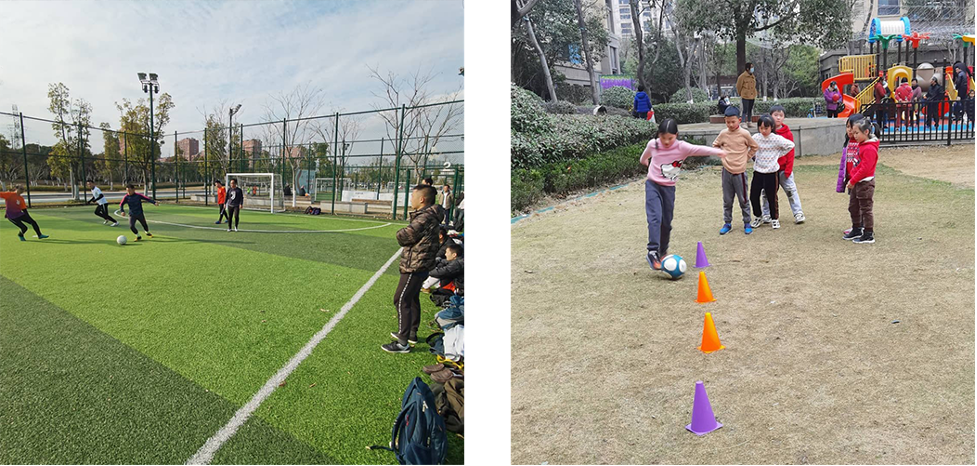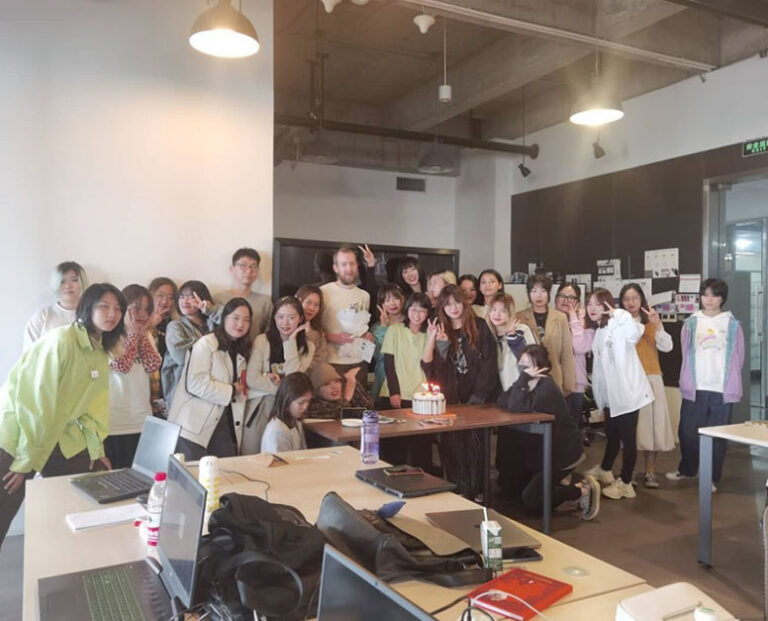Name : Jaap Grolleman
姓名:Jaap Grolleman
Country of Origin : Netherlands
国籍:荷兰
Occupation : Marketing Director
职业:营销总监
Years in China : 3+ years
在华居住时间:3 年多
I’m writing this article while I have just started reading Peter Hessler’s Oracle Bones.
写这篇文章时,我刚刚开始读彼得·海斯勒的《甲骨文》。
Hessler writes about the students of his English class in Sichuan, a trader who he meets in Beijing, and other Chinese people in the early 00s.
海斯勒写的是他在四川教英语时遇到的一个学生,他在北京遇到的一个商人,以及本世纪初的其他中国人。
Actually, Hessler’s book is one in a long list of books written by white men who have written about the people they’ve met in China, such as ‘Wish Lanterns’ from Alec Ash, ‘Age of Ambition’ from Evan Osnos, ‘Street of Eternal Happiness’ from Rob Schmitz, and ‘Young China’ from Zak Dychtwald.
实际上,许多白人写过他们在中国遇到的人,比如阿修的《许愿灯》、欧逸文的《野心时代》、史明智的《长乐路》、戴三才的《年轻的中国》,《甲骨文》只是其中一本。
But Hessler’s book in particular is oozed in nostalgia and beautiful prose. And I envy him being in those places in China in that time.
但海斯勒的书中充满着怀旧和优美的散文。我也很羡慕他生活在那个年代,去过中国那些地方。
But then I realized there is no need for that. I have lived in China for three years now (and I hope for much longer), and in those three years I’ve lived more stories than three years normally would justify.
但后来我觉得,我没有必要羡慕他。我在中国已经住了三年(我希望能住得更久),在这三年里,我经历了许多事情,比通常情况下三年所经历的还要多。
Sure, Sichuan isn’t the same nowadays (I wonder if Number Ten Village of Double Dragon Township still exists), and I don’t think Beijing has many restaurants left where they cool the beers underneath a manhole cover in the road. But my 2018, 2019, 2020, and 2021 have equally brought fascinating peculiarities — even though they’ll be more clear in the future when looking back. And hey, maybe Hessler himself was hoping he was in China twenty years earlier as well.
当然,如今的四川已经不一样了(我不知道双龙镇十号村是否还存在),而且我认为北京已经没有多少餐馆把啤酒放到井盖下面冷藏了。但我在 2018 年、2019 年、2020 年和 2021 年的经历,同样是迷人而特别的——将来回首时将更觉特别。而且,嘿,也许海斯勒本人也希望他二十年前就在中国。
Reading Oracle Bones reminds me of this point. And it also reminds me that you need to actively search those stories, you need to actively make China your home: Hessler made himself fluent in Chinese and documented places and people before being a paid as a journalist.
阅读《甲骨文》让我想起了以上这点。这本书还提醒我,你需要积极探寻这些故事,把中国作为你的家。海斯勒成为一名记者之前,勤学中文直至精通,还记录了一些地方的人和事。
It’s worth saying this, because the opposite is much easier. In Shanghai, life as an expat is easy. Downtown comes with high salaries and you can get by just by speaking English or pointing at pictures in menus. Any service you want, from takeaway to insurance, has (overpriced) alternatives in English. You don’t need to make friends with non-English speaking Chinese people (or with Chinese people at all) and you’ll still have enough people to leave likes on your WeChat Moments. You can wear sunglasses and noise-cancelling headphones to blur out all the rest that China has to offer.
值得一提的是,我并不需要像海斯勒那样精通中文。外国人在上海生活真的很容易。上海市区的工资很高,点菜时你只需会英语或指着菜单上的图片就可以了。你想要的任何东西,从外卖到保险,都会提供(价格相对较高的)英语服务。你不需要和不会讲英语的中国人交朋友(或者根本不需要和中国人交朋友),依然会有很多人在你的微信朋友圈点赞。你可以戴上墨镜和降噪耳机,与中国的环境隔绝。
Learning Mandarin is hard — I’ve taken over 500 class hours learning the Chinese language at GoEast Mandarin— but it’s necessary as I don’t believe you can ever fully understand a culture if you do not speak the language — because your group of friends will be too selective, and all your knowledge about China is second-hand, as you rely on websites or books.
学习普通话很难——我在GoEast Mandarin学习了 500 多个课时——这是必要的,因为我认为如果你不会说一种语言,你永远无法完全理解这种语言所承载的文化——从朋友口中得知的信息都是片面的,如果你过于依赖网站或书籍,那么你所有关于中国的知识都是二手的。
And it’s not just language. Integrating in local life takes effort. To be honest, I too still watch the Dutch news and other media from The Netherlands, because that is the culture which tethers me to the world. And I love European-style bread more than many Chinese types of breakfast. But I have made an active strife to integrate. Maybe part of it is automatic, because curiosity draws me out, but I still need to make the conscious effort to get out during the weekend.
不仅仅是语言问题,我需要努力融入当地生活。说实话,我仍然会看荷兰的媒体新闻,那是将我与世界联系在一起的纽带。而且我喜欢欧式面包,而不是中国式早餐,但我也会积极地融入中国文化。有些融入是自发的,受到好奇心驱使,不过我周末还是需要有意识地出去走走。
So now I play football with the neighbors and learned a dozen Chinese curse words. I’ve met Eva and her daughter Chloe, and I’ve taught Chloe and her friends some football lessons in the compound that I live in.
我和邻居一起踢足球时,学会了十几句中文骂人的话。我认识了Eva和她的女儿Chloe,我还在我住的大院里教Chloe和她的朋友们踢足球。

And like Hessler, I taught several classes of students, albeit marketing instead of English.
和海斯勒一样,我教过几个班的学生,但教的是市场营销而不是英语。

I spoke to a Chinese Muslim in Suzhou about the last mosque in Suzhou, I lived on a farm in Chongming Island, and talked myself into a Buddhist temple that was under construction. Chen proudly showed me his grapes in rural Nantong, and I spoke with factory workers in Songjiang.
我和苏州的一位中国穆斯林谈到了苏州的最后一座清真寺。我住在崇明岛的一个农场里,说服自己进入一个正在建设的佛教寺庙。Chen自豪地向我展示了他在南通农村种植的葡萄,我和松江的工人交谈。

And I’m completely comfortable with the Chinese people in the changing room of the swimming pool. I’ve shared with them the fears of the novel virus when it surfaced in January last year. Heck, I even donated blood which now probably flows through a Chinese person.
我在游泳池更衣室不会感到不舒服,对那里的中国人完全放心。去年1月新冠疫情爆发时,我曾向他们表达我的恐惧。天哪,我甚至捐了血,我的血液可能已经融入到某个中国人的身体里。
All in all, I can honestly say, I have made China my home.
总而言之,我可以坦率地说,我已经把中国当成了家。
作者:Jaap 翻译:潘泽彬
If you would like to contribute your story, feel free to contact us.
Email: luz@mts-tech.com